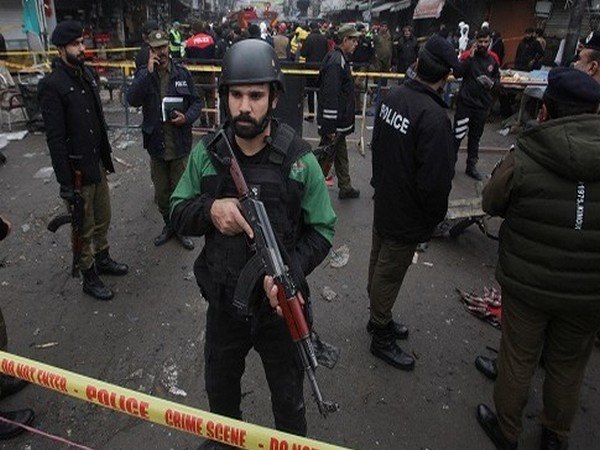The suicide bomb blast in Pakistan, coinciding with the much-hyped official visit of Chinese Vice Premier He Lifeng to celebrate 10 years of China Pakistan Economic Corridor (CPEC) has put the spotlight on the Shehbaz Sharif government. While Islamabad had declared a two-day holiday to provide foolproof security to the senior Chinese official, the bomb blast killing more than 50 people has once again dampened the spirit of the CPEC celebrations even as both sides have attempted to downplay the incident.
The ISIL has claimed responsibility for the blast that took place at a gathering of the conservative Jamiat Ulema-e-Islam (JUI-F) party workers in Khyber Pakhtunkhwa’s (KP).
More than 200 people have been injured. “Though the Sunday blast was not targeted at the Chinese or any Chinese projects, the ghastly episode is a reminder that Pakistan continues to be in a grim state and security remains a major issue,” an analyst who deals with Afghanistan-Pakistan region told India Narrative.
China has repeatedly expressed its concerns over security issues after several attacks on its citizens.
The situation has become so precarious that Beijing issued a statement expressing concerns about the repeated violence, after which Pakistan proactively employed security for all foreign dignitaries, local newspaper the Nation said.
In the wake of the attacks and instances of security breach, Beijing has asked its citizens living in Pakistan to exercise caution and limit their movements.
“The Chinese continue to live in fear in the country. They are scared to associate openly with people of other communities,” a Pakistani citizen who lives outside the country said.
A Baloch insurgent group, last year, released a video message on social media warning China. “The Baloch Liberation Army guarantees you that CPEC will fail miserably on Baloch land … you still have time to quit Balochistan, or you will witness a retaliation from Baloch sons and daughters that you will never forget,” it said. Earlier this month, Sharif visited Balochistan urging the locals to protect foreign investments and projects in the region.
In March, Pakistan authorities were forced to shut down a few businesses that were frequented by the Chinese “to prevent terrorist attacks that could compromise one of Islamabad’s most important international relationships,” Nikkei Asia noted.
That apart, in February, China announced shutting down its consular section citing “technical reasons.” Though it offered no reason for the closure, the growing security unrest in the country has been a key factor.
“They [Chinese] believe this security issue is becoming an impediment in taking CPEC forward,” Senator Mushahid Hussain, the chairman of the defense committee of the upper house of the Pakistani parliament, told Voice of America in an interview.
“Recurring expressions of concern about the safety and security of Chinese citizens and investors in Pakistan by top Chinese leaders indicate that Pakistan’s promises of ‘foolproof security’ for Chinese working in Pakistan have yet to be fulfilled,” said Hussain added.
Even as the Sunday blast was more political in nature and not targeted at the CPEC projects, Pakistan, which is battling an economic crisis, will have to take more concrete steps to ensure such terror acts do not occur.
Also read: China, Pakistan claim CPEC is a success story, but is it for real?




















